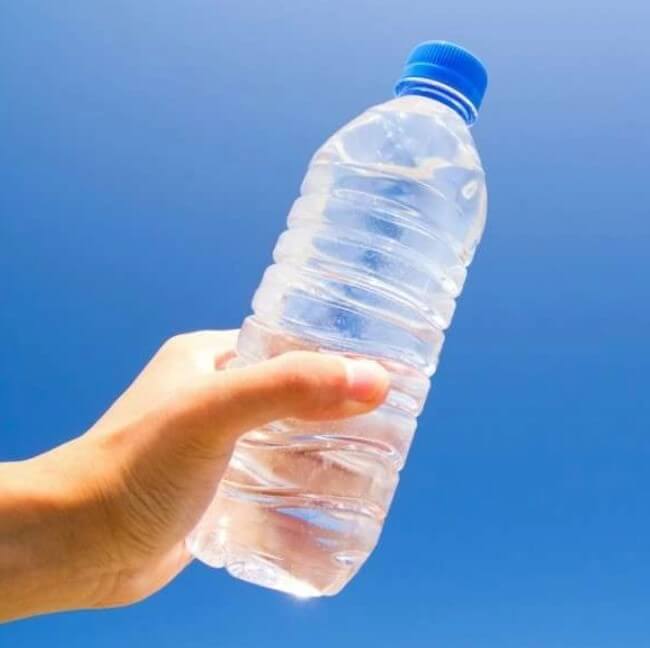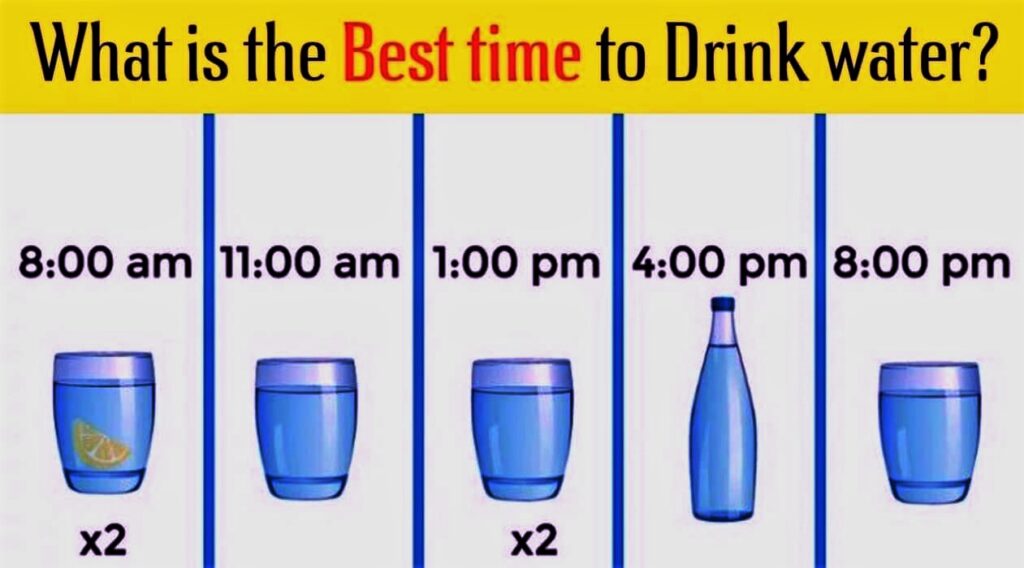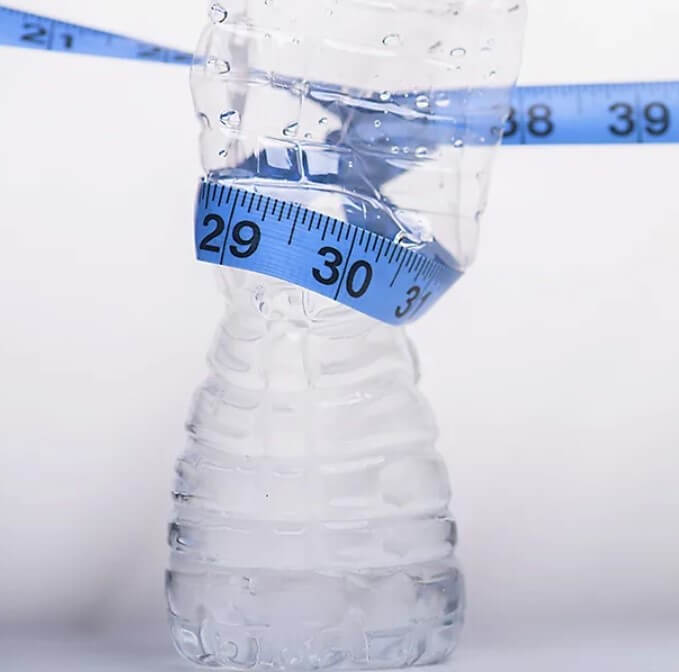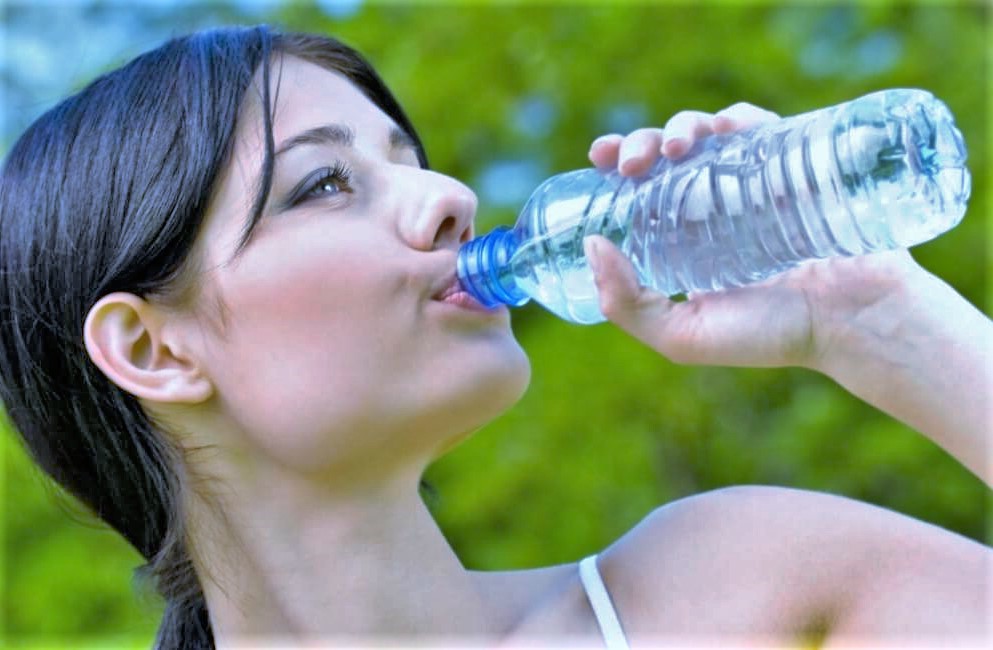how many bottles of water should you drink a day !receive constant messages that tell us that drinking liters of water every day is the secret to good health, healthier skin, or weight loss?
One of the most persistent recommendations is to ‘ drink lots of water ‘. You hear it from doctors, nutritionists, trainers … it seems that there is a division of opinion in everything, except in the idea that we must constantly be drinking.
«Your body is 60% water, you must drink at least 2-3 liters of water a day, at least 8 glasses of water a day, your urine must be very clear …» Do these messages sound familiar to you?
They are so repeated that we take them for certain. The result is bottles of water in all jobs, Gatorade every kilometer in popular races, everyone with their bottle in the gym … and of course, a very happy industry that sells us bottled water at a price of gold .
Although it’s hard to believe, these recommendations have little scientific support (as does the idea of eating 5-6 meals a day ). As much as you search, it will be difficult to find some foundation.
Some observational studies find a minimal reduction in cardiovascular disease in those who drink 5 or more glasses of water a day ( study ), well below the general recommendations, and there is no conclusive information regarding the impact of water intake in various types cancer ( study ).

Multiple studies show no health benefits of increasing water intake, and a comprehensive review of many related studies concludes ” There is no clear evidence of benefits of increasing water intake .” Recognizing that absence of evidence is not the same as evidence of absence, he also concludes ” there is no clear evidence that there is no benefit .”
But for such a widespread recommendation, the lack of evidence seems pretty… obvious to me , especially when the underlying message is: Don’t trust your thirst .
Read also: The best benefits of drinking water
The number of bottles of water to drink per day will depend on the various factors discussed in this guide. Some of them are your age and your gender, but you must take into account what we tell you below.
The body is made up mostly of water. This is not something new, it is something they teach us at school since we are very young. Additionally, we have been told that we should drink enough water each day to stay hydrated. However, we are not usually told how much water to drink.
It’s unnatural
Our body has an exquisite hydration sensor , a homeostatic mechanism refined during millions of years of evolution.
If it is as unreliable as they would have us believe, it is incredible that we have survived all this time without having canteens or bottled water, quite a feat.
The recommendation to drink “x” liters of water a day promotes the idea that we should ignore the basic messages of our body. Are you not thirsty? It doesn’t matter, keep drinking because you haven’t reached your daily quota . Don’t worry if you have to go to the bathroom every two hours or if your bladder wakes you up in the middle of the night.
And speaking of bladders, you may have also heard the recommendation that urine should be very clear. Several studies find no relationship between urine color and hydration status ( study ), beyond the first of the day. Unless you see something weird, don’t be obsessed with color.
When we deliver a message that contradicts our nature to the public (such as drinking without thirst), we must have strong evidence that it is a good idea. In this case, they don’t exist.
May interfere with digestion

It is not advisable to drink a lot of water with food. Your stomach needs an extremely acidic environment to digest food. If you flood it with water, you dilute the gastric juices and therefore its ability to digest, apart from reducing the effectiveness of the elimination of possible pathogens (another benefit of the low pH of the stomach). If you have digestion problems, reduce the liquid in your food.
Don’t miss: The best Lemon water on an empty stomach: this is what…
It makes us forget about food water
Food should be an important source of water. The vegetables are mostly water. The fruit also. Even meat, fish and eggs have a high percentage of water.
And if you have a vegetable cream/soup or a bone broth, you get not only hydration but also nutrition.
Dehydration is the condition in which the body does not have enough water to function properly. You can become dehydrated if you don’t drink enough water, especially if you are losing a greater amount due to activity level or the environment. Increased water loss may be due to excessive sweating, urination, diarrhea, or vomiting. Dehydration can cause weakness, fatigue, muscle cramps, decreased urine output, and confusion. Severe dehydration requires emergency medical attention.
We cannot say the same for cereals , whose water content is very low, especially if they are refined.
May alter electrolyte balance :

Our body requires specific proportions between certain minerals, such as sodium and potassium. You also expect a specific concentration of these minerals in your blood. An excess of water dilutes that concentration, which together with the modern fear of salt ( also wrong ) means that drinking more than necessary can lead to an electrolyte imbalance.
You can overhydrate
Just as the benefits of fasting are not touted because they don’t help sell anything, the industry prefers to bombard us with the risks of not drinking enough, but they forget to alert us to the dangers of drinking too much.
The poison is in the dose, and it is literally possible to get intoxicated with water. The hyponatremia, as is known this is indeed a real danger. More runners die from hyponatremia than from dehydration.
Without going to these extremes, a constant excess of water, with a very low-salt diet, can reduce sodium levels in the blood enough to cause long-term negative effects, for example, bone fractures and heart attack myocardial.
No one will get hyponatremia from drinking 2-3 liters of water, but forcing yourself to permanently consume more water than you need is probably more damaging than simply drinking when you’re thirsty.
Unnecessary compounds
Another typical argument for recommending increasing your water intake is that it improves kidney function, helping to eliminate toxins. Although there is no information to disprove it, several studies question this idea. A review of current studies ends with the inconclusive ” more research is needed “, and there are even studies that associate increased hydration with reduced glomerular filtration rate.
What does seem clear is that drinking more water exposes you to more potentially problematic compounds. Fluorine, chlorine and plastics in the case of tap water (with meta-studies associating the intake of chlorinated water with certain types of cancer), and some xenoestrogens such as Bisphenol-A in bottled water.
I do not want to be an alarmist or that now you are afraid of water, it was only missing :), but introducing more toxins into your body unnecessarily is…. ehhh, what is the word … unnecessary.
And this without talking about the enormous waste associated with bottled water, one of the great businesses of the century. Most of the bottled water we drink is nothing more than filtered tap water. For your sake, and that of the environment, buy a better home filter.
Water is water
The water in food is water. The water in milk, coffee or tea is water. Even the water in Coca-Cola (argh!) Is water. Some experts say that to meet your daily quota you should only count pure water. This is absurd.
And of course do not fall for the scams of water with oxygen, Penta water or alkaline water. Water is water, and I doubt we can improve its formula (H2O), no matter how hard we try.
Does drinking water lose weight?

In a direct way, obviously not, but we could say that it helps in two aspects related to weight loss:
- Drinking cold water slightly speeds up your metabolism, and your body certainly burns some extra calories to warm it up (but bathing in cold water is much more effective ).
- Drinking water before a meal causes a satiating effect, reducing the calories consumed. This seems to work in adults ( study ), although the same effect is not found in young people ( study ).
If your goal is to lose weight, drinking a glass of water 30 minutes before you eat can help you eat less. Remember that during the meal or immediately after it is better not to drink too much, so as not to interfere with digestion.
But don’t put your hopes in the water. The effect is very limited. Drinking lots of water is not the secret to losing weight. Eat well, yes.
How much water to really drink?
To be clear: I have not covered much the subject until now because there are traditional recommendations much worse than drinking more than necessary .
But here is my totally innovative proposal: Drink when you’re thirsty.
If thirst leads you to drink two liters of water a day, perfect. If it’s three liters, it’s probably because you need it.
And as always, experiment. Some people feel better by drinking something else. If this is your case, go ahead. Others feel that by drinking more the digestions are worse, or it is more difficult for them to warm up ( cold hands and feet ). In that case, don’t do it.
The bottom line is that when we take a general recommendation as dogma, without questioning its origin or the interests behind it ( ), we simply endure a myth and allow them to continue to profit from our health.
No animal needs hydration guides. Drinking when you feel thirsty is the best recommendation .
If you are one of those who needs more specific rules, I would tell you that if you urinate more than 6-7 times a day and / or get up every night to go to the bathroom, you are probably drinking too much.
I do not deny that certain circumstances make it advisable to drink something more than what your body asks for, but they are exceptional circumstances, not the rule. To review the most typical cases:
- At the beginning of a ketogenic diet it is normal to lose a lot of water when consuming the glycogen stores. Electrolytes are also lost with this water. Although thirst usually accompanies this process, it is advisable to drink more water than normal and be more generous with the salt.
- Kidney stones. Before, we saw that the idea that an increase in water intake is beneficial for the kidneys is highly questionable. But in case there are indications of stones, it does seem that drinking more water helps ( study ).
- The anticipation of high water loss. If you are going to run a marathon in the summer, it is probably a good idea to start the race with more liquid than usual.
- Elderly. Although some studies do not find benefits from increasing water intake in older adults (55-75), others indicate that the sensation of thirst loses reliability with age ( study ). As a precaution, it may be advisable for older people to drink from time to time without thirst.
- Pregnancy and lactation: It is a general recommendation to increase your water intake in these cases. Although I have not found any supporting studies, it is reasonable to think that with all the hormonal changes associated with this stage, drinking more could be positive. On the other hand, it is also especially important to reduce chlorine..
Sport drinks

Until the 1970s, the recommendation for distance runners was to drink little, for fear that the extra weight and excessive perspiration would slow them down. The drinking (water) stalls at marathons were scarce, and certainly not considered necessary in the first half of the race. Completing a marathon without water was, in fact, the ultimate goal, the true fitness test.
Despite there being no evidence that this practice was dangerous, sports drink manufacturers decided around that time that they were going to convince us of two things:
- We cannot trust our thirst.
- Water is not the best drink for hydration.
Notes:
Different factors must be taken into account to determine how much water to drink per day. If we do not, we can get to hydrate well by excess, or by default; and this can lead to serious health problems.
Age
Age is a very important factor in determining how much water is needed. Babies and children’s bodies are made up of more water than adults. So they should drink more water.
The lack of it can affect growth, memory, learning and other important activities. However, this does not mean that children need more water than adults, but rather that they need more water in relation to their body weight.
A child weighing 27 kg will not need the same water as an adult weighing 90 kg. However, the child will need more water per kilo of his body than the adult.
Sex
Another important factor in determining the water we should drink is sex. Men usually need more water than women, although this is not always the case.
Physical conditions such as infections or pregnancy can be determining factors. However, as men tend to be larger than women and their metabolism always needs more, as a general rule, they will need more water than women.
Another factor is the body composition of both. Women tend to have a higher percentage of adipose tissue, which decreases the amount of water the body contains, and therefore, decreases the amount of water they should consume.
Size
Size is another clear factor in how much water is needed. You have to find a balance taking into account your needs.
A liter of water may be very little for a grown man, but it would be a lot for a child or baby.
If you liked the post on the recommended ARE YOU DRINKING ENOUGH WATER?, you can share it on your favorite social networks (Twitter, Facebook, etc.). Every day there will be new recipes and tricks for you. Follow us on Facebook.
how many bottles of water should you drink a day

